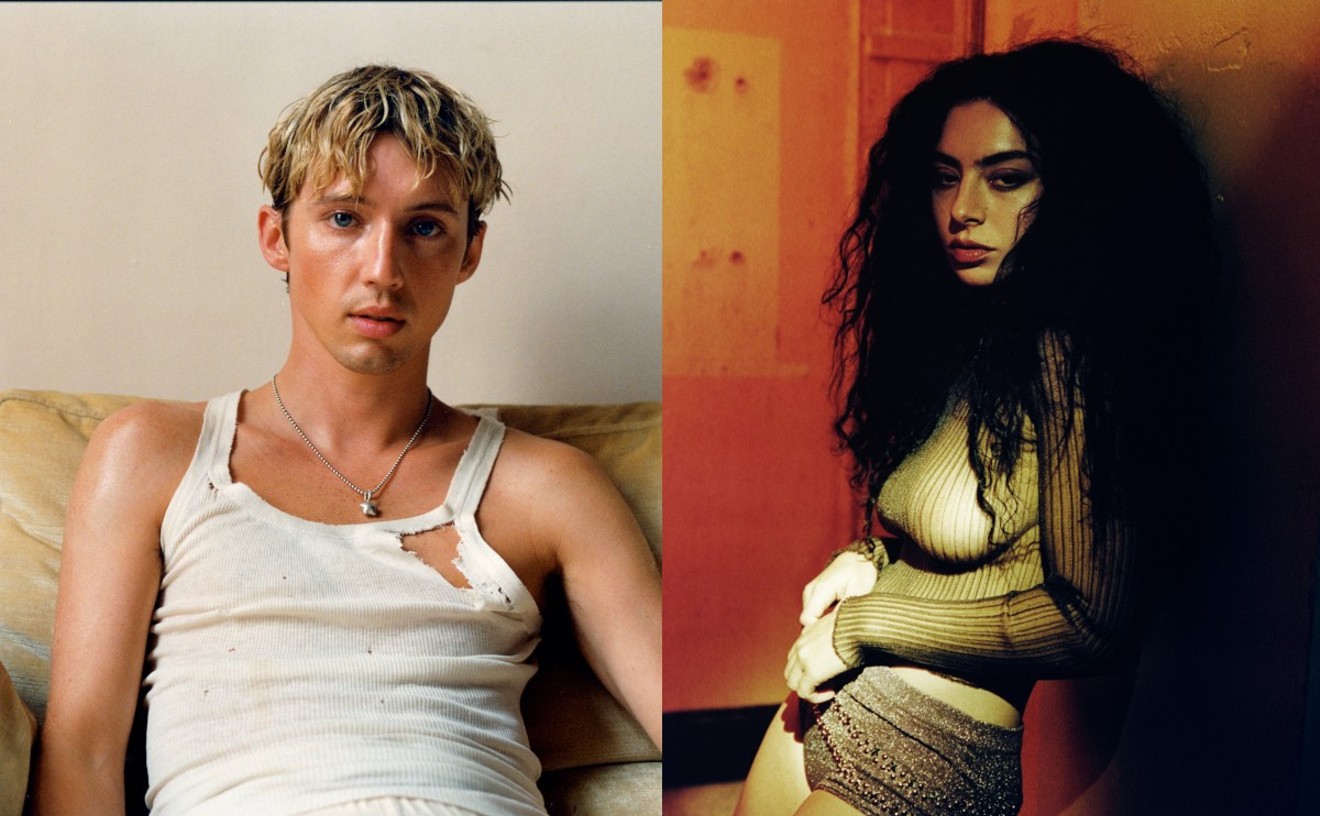While roasting under the summer sun of Chicago, his temporary home, Kidwell is amusing, affable, and never hesitant about going off on tangents, especially on the genre where his roots lie. "I was in a little spazz-core band in Baltimore," Kidwell recalls. "When we were talking about emo, we were talking about hardcore made by guys that didn't want to be tough, like skinny dudes screaming and writhing on the ground. At that time, nobody was thinking about getting on MTV or the cover of Rolling Stone. Now, it's like Dashboard Confessional has two buses and a tractor-trailer when he goes on tour. It's like dudes on the fringe are in emo bands because they've got all those tattoos, but they're singing the song for Spider-Man."
As emo took the commercial road, Kidwell deserted instrumentation in favor of our 21st-century deity, the computer. Innocent software dabbling turned into fruitful obsession, and by drinking age, Cex had transplanted to the Bay Area, helped develop Kid 606's Tigerbeat6 label, and had four records and several tours under his belt. Prodigious? Perhaps, but performance is his stress relief.
Earlier tours consisted of a laptop and stripped-down (often literally) performance art where lyrical confrontation/improvisation was inevitable. "That performance art style was a big reaction against being bored," he explains. "I've never been totally convinced that I have another tour waiting. It's always like, 'They're going to come and find out what I'm doing and yank the cord out of the wall. '"
Laptop shows get plenty of backlash, the main argument being their lack of actual showmanship. As his albums grew increasingly substantive -- less tongue-in-cheek and more Marshall Mathers meets Anticon (2003's Being Ridden and Maryland Mansions) -- Cex manifested his PC disillusionment with an expanded lineup. "Doing it all by myself got to be really frustrating," Kidwell admits. "I wanted more room, so what I've been doing the last four tours is experimenting with lineups and bringing different people out. The shows when I'd open for rock bands, I'd feel this palpable uneasiness because there were no drums on stage. One of the big things why I started playing with other musicians is that I want to tease people with those fucking drums."
It's not just that the stage required the changes; the music's increasing maturity demanded it. Most of his electro-colleagues are still content to idle through a performance, beat manipulating here, checking e-mail there, while visuals wander on autopilot in the background. Kidwell has a more grandiose vision. "Maryland Mansions was a very useful record to make," he says. "I wanted to make the grossest, pettiest record I could, pulling people in the hole I was in and whispering all this crap in their ear." He succeeded. Mansions took Cex from the bratty rapitude of his earlier albums to verbal self-flagellation. When he reveals "I don't get up/I don't get down/But I still breathe/At least for now," that whisper in your ear turns to an all-out growl.
His latest effort, Invisible Sidis, continues the pattern of maturation. "This is the first record that I didn't make in my bedroom," Kidwell says. "I went and recorded a big bulk of it in Portland, with my friend Jason from Dismemberment Plan who works at Inner Ear Studios in D.C. It's a different sound and theme. The two big places I was shooting with this record were, like, Steely Dan and Eno with Talking Heads." Now a studio conductor of sorts, Kidwell's allowed his relentless neuroses to translate from a band perspective. "My friends have been so trusting of me, willing to let me be this little fascist," Kidwell quips. "I get to have all this movement and breathing of real instruments. But at the same time, I don't have to sacrifice any of the Cex-centric quality to the music. It's other people playing but with me standing there with a cat-o'-nine-tails behind my back."
Having progressed from goofball sonic dilettante to masochistic bandleader in just a few short years, Rjyan Kidwell is staking a better claim for longevity, minus de rigueur. "It's amazing to have a brilliant debut and be critical darlings, but that happens every day," he says. "The teeming hipsters' identities are hinged on the fact that they know the newest, coolest thing. In, like, ten years, is IDM going to be on the cover of Rolling Stone, with dudes in suits with laptops and cybernetic eyeballs?" If that were the case, Cex will have most likely played a devious part.










